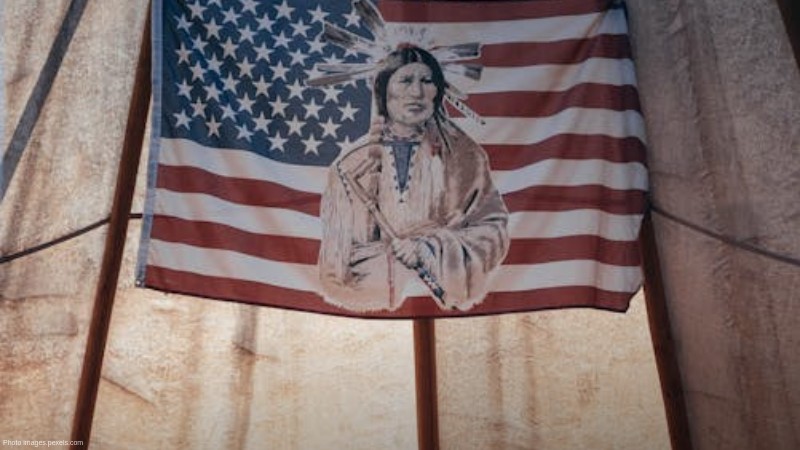The American Indian Wills Clinic (AIWC) at Oklahoma City University School of Law is expanding its services to provide no-cost will and estate planning for Indigenous Oklahomans. Recognizing the unique challenges faced by tribal clients, such as owning both Indian and non-Indian property that can complicate the probate process, the clinic offers essential legal assistance.
These services include wills, estate planning, power of attorney, advanced directives, and transfer on death deeds. Indigenous individuals who live in or own land in Oklahoma, particularly those possessing restricted or trust land, are given priority for these services.
Key Takeaways
The American Indian Wills Clinic at Oklahoma City University School of Law offers free estate planning services to Indigenous Oklahomans, addressing unique challenges in tribal land ownership and probate processes.
- AIWC provides essential legal assistance including wills, estate planning, power of attorney, advanced directives, and transfer on death deeds to Indigenous individuals living in or owning land in Oklahoma.
- The clinic empowers tribal communities by ensuring their assets are properly handled, helping Indigenous families retain ownership and avoid complications related to federal and state laws.
- AIWC has received a $90,000 grant from the USDA Rural Development to broaden its reach to additional tribal nations, particularly in rural areas, and increase access to legal services for underserved Indigenous populations.
Empowering tribes and future advocates
In an effort to bridge legal gaps in Indigenous estate planning, AIWC focuses on empowering tribal communities by ensuring their assets are properly handled. Many Native American landowners face complex legal barriers when passing property to heirs. By offering specialized legal services, the clinic helps Indigenous families retain ownership and avoid complications related to federal and state laws.
The initiative secures the financial future of Native families while preserving tribal land and sovereignty, all while serving as a hands-on learning environment for OCU law students. Each semester, eight students participate in AIWC, gaining hands-on experience and academic credit. Students typically manage around six clients per term, allowing them to develop valuable insights into federal Indian law and the cultural nuances of Oklahoma’s tribes.
[This service] can give them peace of mind as a family as to what their wishes are when they pass away,
Cecelia Cole, third-year student at OCU
This immersive experience has inspired students like third-year law student Cecelia Cole to pursue careers in Indigenous legal advocacy.
Federal support and rural outreach expansion
Recently, AIWC received a $90,000 grant from the United States Department of Agriculture (USDA) Rural Development. This funding will enable the clinic to broaden its reach to additional tribal nations, particularly in rural areas. The grant will support two primary initiatives: the creation of an Advanced AIWC & Rural Services Expo and the appointment of a clinical fellow within AIWC. The fellow will serve as a liaison between tribal nations to strengthen relationships and expand legal assistance throughout Oklahoma.
Oklahoma’s Indigenous communities often face significant barriers in accessing legal services. With 59 out of 77 counties classified as nonmetropolitan and 31 of the state’s 38 federally recognized tribal governments headquartered in rural regions, legal aid remains scarce.
Many individuals struggle with geographic isolation, limited transportation, and a lack of attorneys familiar with federal Indian law. By increasing its outreach, AIWC aims to bring estate planning services directly to underserved Indigenous populations, ensuring they have the legal resources necessary to protect their assets and inheritance rights.
Since its establishment in 2009, AIWC has served over 1,300 clients from 29 of Oklahoma’s 39 tribes and 12 tribes from other states. The clinic has executed more than a thousand wills, 193 powers of attorney, 184 medical advance directives, and forty-six transfer-on-death deeds for non-Indian property. This track record highlights the clinic’s long-standing commitment to providing free legal services tailored to Indigenous estate planning needs.
Tribal sovereignty through legal aid
AIWC’s work is a testament to the power of collaboration in addressing complex legal challenges for Indigenous communities. The partnership between OCU Law and the USDA demonstrates a commitment to maintaining tribal sovereignty, protecting Native land ownership, and empowering Indigenous families.
By expanding the AIWC’s reach and resources, the initiative supports the legal and economic future of Native communities while also providing crucial learning opportunities for future legal professionals.
TOMORROW—Join us for our Senior Social — Tuesday, January 28 at AIHSC, 11:30 AM – 2 PM! Lunch will be served!
• Medical staff available for BP & glucose testing
• Visit, laugh, tell jokes, BINGO
• Exchange useful information
• Learn to bead or sewing( (all equipment and … pic.twitter.com/MIztrLqTeQ— AIHSC (@AIHSChicago) January 27, 2025
This initiative extends beyond estate planning by fostering stronger relationships between tribal governments, legal professionals, and community organizations. Through ongoing engagement, AIWC contributes to a more sustainable and accessible legal framework for Indigenous landowners.
As the clinic continues to grow, it remains dedicated to preserving the rights and assets of Native American families for generations to come.


